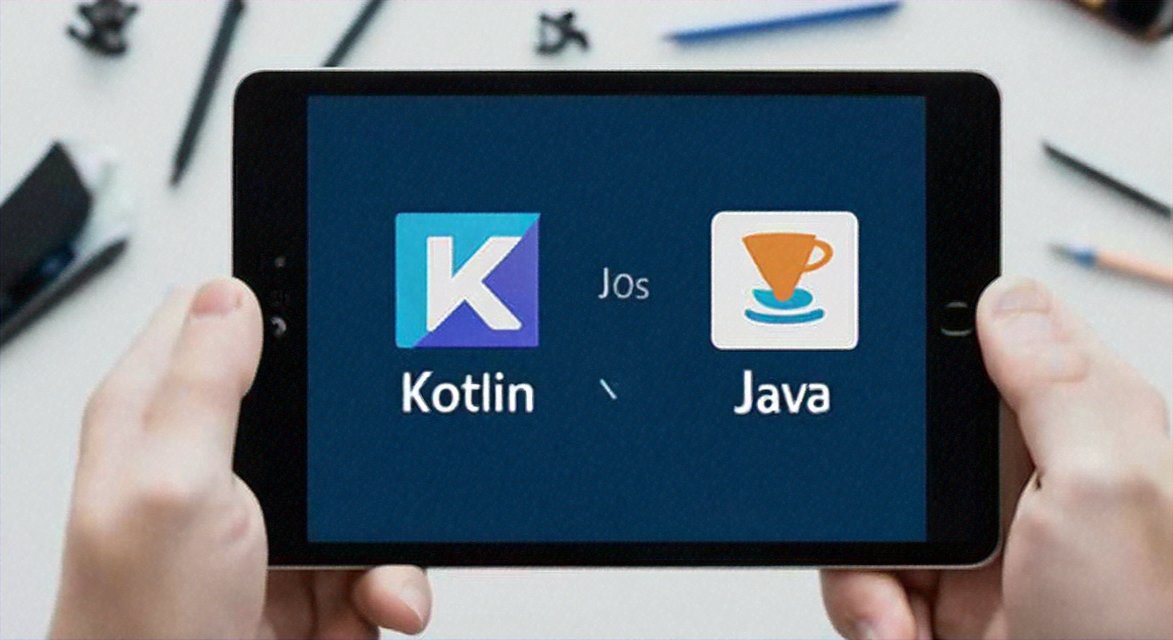Kotlin and Java: A Developer's Guide to Leveraging Both Languages for Optimal Performance 🌟

Understanding the Basics: Kotlin and Java
Kotlin and Java are two of the most popular programming languages in the world, especially in the realm of Android development. Both languages have their unique strengths and weaknesses, and developers often find themselves choosing between them. But what if you could leverage both for optimal performance? Let's dive into the world of Kotlin and Java and explore how developers can make the most out of both languages.
Kotlin: The Modern Language
Kotlin, introduced by JetBrains in 2011, is a statically typed programming language that runs on the Java Virtual Machine (JVM). It was designed to improve the development process and make Android development more enjoyable. Kotlin is concise, expressive, and interoperable with Java, which means you can use both languages in the same project.
One of the key features of Kotlin is its null safety, which helps prevent null pointer exceptions. Kotlin also offers coroutines, a powerful tool for asynchronous programming, making it easier to handle complex tasks like network requests or database operations.
Java: The Legacy Language
Java, on the other hand, was introduced by Sun Microsystems in 1995 and has been a dominant force in the programming world for over two decades. It's a statically typed, object-oriented programming language that runs on the JVM. Java is known for its "write once, run anywhere" philosophy, making it a versatile language for various platforms, including Android, web, and enterprise applications.
Java has a vast ecosystem, with a plethora of libraries and frameworks available for developers. It's also widely used in enterprise environments, making it a valuable skill for many professionals.
The Relationship Between Kotlin and Java
Now that we have a basic understanding of both languages, let's explore their relationship. Kotlin and Java are not competitors; rather, they are complementary. Kotlin was designed to work alongside Java, not replace it. This interoperability is one of Kotlin's most significant advantages.
Interoperability
Kotlin and Java can coexist in the same project without any issues. You can use Kotlin for new features and Java for legacy code. This allows developers to gradually migrate their projects to Kotlin while still leveraging the existing Java ecosystem.
Code Sharing
One of the most remarkable aspects of Kotlin interoperability is code sharing. You can share code between Kotlin and Java files without any additional work. This means you can use Kotlin for new features and Java for existing ones, making the transition smoother.
Performance
When it comes to performance, both Kotlin and Java are comparable. Kotlin's performance is often on par with Java, and in some cases, it can even outperform Java due to its optimizations. However, the real performance gain comes from using Kotlin's modern features, such as coroutines, which can help you write more efficient code.
Leveraging Both Languages for Optimal Performance
Now that we understand the relationship between Kotlin and Java, let's explore how developers can leverage both languages for optimal performance.
Use Kotlin for New Features
Kotlin's modern features, such as coroutines, null safety, and concise syntax, can help you write more efficient and maintainable code. Use Kotlin for new features and libraries in your project to take advantage of these benefits.
Use Java for Legacy Code
If you have a large Java codebase, it's not practical to rewrite everything in Kotlin. Instead, use Java for legacy code and gradually migrate to Kotlin as needed. This approach allows you to maintain your existing codebase while still leveraging Kotlin's benefits.
Leverage Kotlin's Interoperability
Kotlin's interoperability with Java makes it easy to use both languages in the same project. This allows you to take advantage of Kotlin's modern features while still using Java for legacy code.
Optimize Performance with Kotlin
Kotlin's performance is often on par with Java, and in some cases, it can even outperform Java. Use Kotlin's modern features, such as coroutines, to optimize your code and improve performance.
Conclusion
Kotlin and Java are two powerful programming languages that can be used together to achieve optimal performance. By leveraging both languages, developers can take advantage of Kotlin's modern features while still using Java for legacy code. Whether you're new to Kotlin or a seasoned Java developer, understanding the relationship between these two languages can help you make the most out of your development process.
References
- Kotlin Documentation: "What is Kotlin?" Kotlin
- Oracle Java Documentation: "What is Java?" Oracle
- JetBrains Kotlin: "Kotlin vs Java" JetBrains
- Medium: "Kotlin vs Java: Which One Should You Choose?" Medium
- Stack Overflow: "Kotlin vs Java performance" Stack Overflow
🔗 1. Kotlin vs Java: Which One Should You Choose? 🔗 2. Kotlin vs Java performance 🔗 3. Kotlin Documentation 🔗 4. Oracle Java Documentation 🔗 5. JetBrains Kotlin

